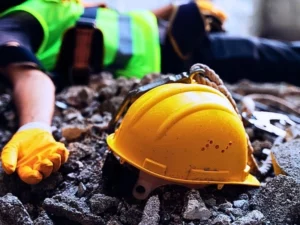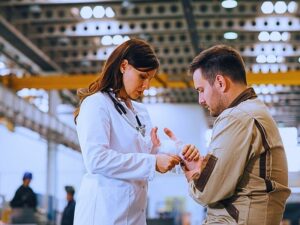In Illinois, mask-wearing is an essential preventative measure to help to stop the spread of COVID-19, but improper breathing while wearing masks for prolonged periods can lead to respiratory problems for workers. Workers who wear masks for eight or more hours per day may suffer from headaches, dizziness, fatigue, rapid heart rates, and anxiety. All of these side effects may result in missed time from work and workers’ compensation claims. There are several steps that workers can take to prevent negative side effects from wearing masks and reduce problems from mask-wearing.

Why Can Mask-Wearing Cause Problems?
Many medical professionals in Illinois routinely wear masks for more than eight hours per day but do not suffer any side effects. However, other essential workers who are required to wear masks at work for eight or more hours might suffer side effects from the prolonged mask-wearing.
____________
The reason some workers might suffer problems from prolonged mask use is that they may not be breathing correctly. Some people tend to take more rapid, shallow breaths while wearing masks, which can cause their bodies to remain in a heightened state of alert. This can lead to otherwise avoidable side effects.
(Article continues below infographic)

How to Prevent Side Effects From Mask-Wearing
Wearing a mask for a short time, such as brief trips to the store, is unlikely to cause any problems. However, when people wear masks for eight or more hours in a day, they need to make sure that they are wearing them correctly and breathing the right way. People should not breathe through their mouths. When people breathe through their noses, their respiratory systems filter the air, regulate breathing, and ensure that proper oxygenation occurs.
Before putting masks on, people should take five regular breaths by inhaling through the nose and exhaling through the mouth. This can help to prime them so that they continue to breathe correctly when wearing masks. During the day, people should take several breaks from their masks while in safe areas at a distance from others. While wearing masks, people should make sure that they are taking longer, slower breaths and are avoiding shallow, rapid breathing. Practicing respiratory muscle training each day can also help to ensure that a person will breathe more easily when wearing masks at work.
Masks are key to slowing the spread of COVID-19. Taking simple steps can prevent undesirable side effects.







